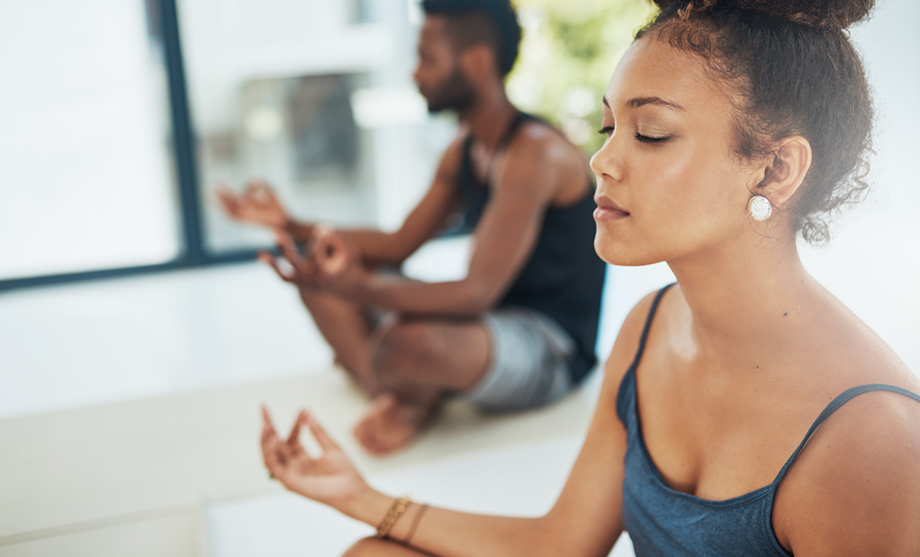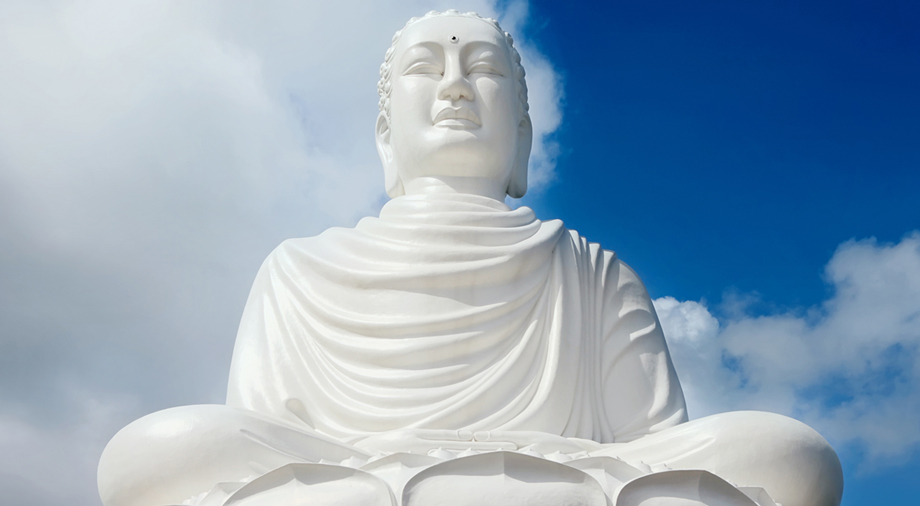Too busy to meditate? … Think meditation is for barefoot dreamers in yurts? … Have trouble with the idea of “sitting and doing nothing?”
Meditation can benefit your career in myriad ways — from increasing your leadership capacity to improving your memory/focus and enhancing interpersonal relationships. But because the direct and indirect impact of meditation on your career can be hard to see, you might dismiss it, failing to recognize its potential value in your own life.
Compounding the challenge, we live in a culture that applauds busyness; for many people, the idea of “sitting and doing nothing” — even for just 10 minutes a day — is unfathomable.
In fact, if you’re wondering why your career isn’t advancing to the next level, why you’re not fulfilled at work or why you’re not getting the job(s) you want, it could be that you’re “doing nothing” on a larger scale. There is no such thing as a cruise-control setting on the way to professional — or personal — success.
Rather, the road is paved with intention that guides every decision, action, or as is often the case, inaction. Perhaps the most profound, overarching benefit of meditation is that it cultivates mindfulness, which fosters awareness and leads to intention.
Meditation Can Lead To …
Elizabeth Sockolov, co-owner of One Mind Dharma, leads online and in-person meditation sessions. As she explains, meditation offers many benefits that can improve your performance at work:
Increased concentration — “Numerous studies have shown that people who meditate regularly are better able to focus and sustain attention,” she points out. “Whatever type of work you do, it is beneficial to focus because concentration allows us to be more efficient with your time.”
Less stress — Elizabeth says that meditation has been proven to reduce anxiety. “If you’re stressed out by your job, as so many people are these days, the ability to regulate that stress can really help you succeed.” One study conducted by a group at the University of California, Davis found a direct correlation between an increase in mindful meditation and a decrease in the stress hormone cortisol.
Improved listening skills — Researchers found that that doctors who practiced mindfulness meditation listened better and were less judgmental at work and at home. (While the study focused on doctors, the lessons apply to people in any field!)
Better interpersonal relationships —“Loving-kindness and compassion meditation help us cultivate friendliness toward people we come into contact with. When we treat people with kindness, our careers flourish,” Elizabeth explains. “It allows us to make business connections that are based on mutual understanding rather than exploitation.”
A deeper connection with the real you — Sometimes, we are so goal-driven (get the job, get the raise, get the promotion) that we forget to think about what it is that truly drives us and makes us happy. Mindfulness can help you reconnect with your true purpose.
What’s holding you back from starting a meditation practice?
If you think your schedule leaves no for meditation, you’re not alone. Elizabeth says she hears it all the time. “The truth is that meditation is something that can be part of every activity you already do. Thich Nhat Hanh, Zen Master, writer, poet, teacher and peace activist, says it best: When you’re washing the dishes, just wash the dishes.
It sounds so simple — and it really is. Yet so many of us spend our time, whether washing the dishes, driving or walking somewhere are thinking about the future (as in, everything we need or want to do) or the past, replaying the off-putting comment from a colleague or other events that happened earlier in the day, week or even the distant past.
Elizabeth advises being present. Focus your attention on what you’re doing. Here. Now.
“If you’re particularly busy and think you don’t have time to meditate, I encourage you to meditate while doing the things you already do. Practice coming back to the task at hand and notice how your body feels while you are doing it. You might even notice which of your senses are engaged while you’re engaged in this activity … what do you feel, hear, smell, taste, or see? You can bring this kind of presence and awareness to everything that fills your day.”
Elizabeth also recommends starting small. “There are many great guided meditations available that are only one to five minutes long. Try doing one of these when you get to work in the morning or before you go to bed at night. It will only take about one minute of your day! You can begin to build up a meditation practice by starting small like this and seeing that daily meditation is possible.
Taming Monkey Mind
Feel like you’re mind is incapable of slowing down to meditate? We all have monkey mind, Elizabeth reassures.
“Human minds that are wired to think, worry, ruminate, and more. So the first step is to know that everyone has a restless mind, you are not alone. It is unrealistic to imagine that you can close your eyes to meditate and your mind will magically go blank. Rather than working against our minds we can work with their tendency to think.
“You can begin by just noticing that the mind is wandering. You might take up a labeling practice and try to note ‘thinking’ every time the mind wanders. The key is not to beat yourself up when you notice that it is thinking. Invite yourself back to the task at hand or meditation with kindness and compassion.
“It’s important to remember that meditation is a practice; if your mind were already perfectly concentrated you would not need meditation!”
How To Meditate
Luckily, you are already engaged in the most important part of a meditation practice: breathing.
The next step is to pay attention and breathe consciously. Engaging in deep diaphragmatic breathing is, hands down, the fastest way to slow your body’s physiological response to stress.

Start by doing this for two minutes today. See how you feel. Do it again tomorrow, see how you feel. Beginning your day by taking two minutes to breathe can have a huge impact — both in the moment and for your overall health.
If meditating is new to you, it may be difficult at first. You may sit down, take a deep breath and start unwittingly running through your to-do list. You might focus on the fact that your nose itches or remember that you didn’t refill the dog’s water bowl. These are all natural reactions and they are all okay. As soon as you realize that your mind is wandering, gently bring your focus back to your breath.
Don’t judge yourself or the thoughts you are having. Many people describe thoughts during meditation as rocks in the water — they are there; simply encounter them and move on.
Make meditation a habit. Start by scheduling your two minutes first thing in the morning. Put it on your calendar. Once you are comfortable with two minutes, try five — then grow your practice. Small steps can lead to big results.
Related: Microhabits: Small-but-Mighty Agents of Change
Unlock the Benefits of Meditation by Shifting Your Perspective
Understanding the many ways in which you and your career can benefit from meditation may help you see that meditating is quite the opposite of “doing nothing.” Think of ways you can easily find five or 10 minutes in your day to meditate. Can you set the alarm a few minutes early? Give up a few minutes of scrolling through Facebook? Skip a few minutes of TV?
No longer reserved for the religious or yurt-dwellers, meditation has found its way into mainstream culture. And for good reason: As more and more “everyday” people discover its benefits, more and more scientific evidence confirms them.
What could you — and your career — gain from incorporating a meditation practice into your life?



